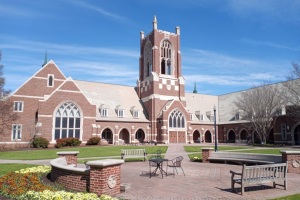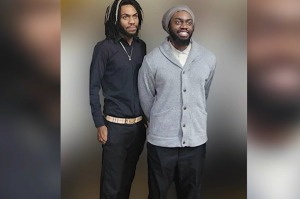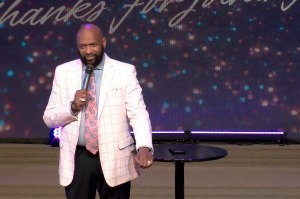The Faith of Matthew McConaughey
Seven words set off a Twitter firestorm: "First off I want to thank God." Not because it's radical to thank God in public (at least not yet), but because the person who did had just won Best Actor at the Academy Awards. And because he isn't a person known for public displays of religiosity.
Matthew McConaughey's statement in full: "First off I want to thank God, because he's the one I look up to, he's graced my life with opportunities which I know are not of my hand or any other human kind. He has shown me that it's a scientific fact that gratitude reciprocates. In the words of the late Charlie Laughton, who said, 'When you got God you got a friend and that friend is you.'"
What was the reaction? Mostly silence from the Oscar audience, a fact several noted in their Twitter responses. Other viewers were more supportive of the actor's profession of faith. But many were angry: "Matthew McConaughey thanking god…….I hate him so much." Another responded: "I thought we could get through the Oscars without someone thanking god but no he had to ruin it, [Expletive deleted] you McConaughey."
What do we know about his faith? How is it relevant to us today?
Matthew David McConaughey was born on November 4, 1969 in Uvalde, a town in South Texas. He grew up there and in Longview, later graduating from the University of Texas with a degree in media. His mother was a kindergarten teacher and later a published author. His father once played in the NFL for the Green Bay Packers before becoming a gas-station owner.
His Methodist parents took his name from the New Testament. For this reason, he has never shortened it to "Matt." His wife, Brazilian model Camila Alves, was raised as a Catholic and attended a Catholic university. As a result of her faith commitment, they were married in 2012 in a private Catholic ceremony.
Now you know everything I could learn about Matthew McConaughey's faith. Here's what people seem to be missing in the controversy about his Oscar declaration: he articulated a profound theological sentiment. In quoting the late British actor Charlie Laughton, he was more right than he may know: "When you got God you got a friend and that friend is you." When we see ourselves as God sees us, we learn that he loves us for who we are, not for what we do. We are free to befriend ourselves, to treat ourselves as a true friend would, with unconditional grace and support.
The Lord of the universe considered your eternal life worth the death of his Son. Do you agree?





























